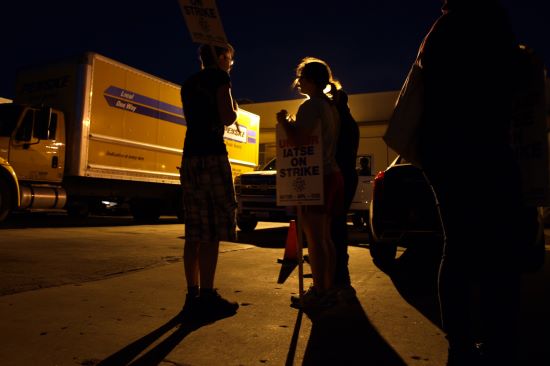by David Waelder
Photos by David Waelder unless specifically credited
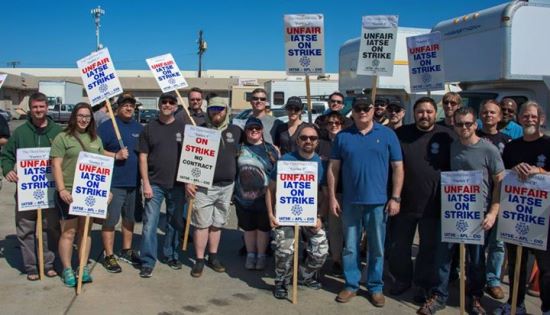
The Asylum is a production company specializing in ultra-low-budget projects that capitalize on trending events with titles just this side of copyright infringement. They made Transmorphers in 2006, capitalizing on the pending release of Transformers, and, in 2008, they made The 18-Year-Old Virgin—well, you get the idea. In 2013, they had a feeding frenzy with Sharknado, a film based on the premise of a cyclone vacuuming up sharks in waterspouts and depositing them to run amok on land.
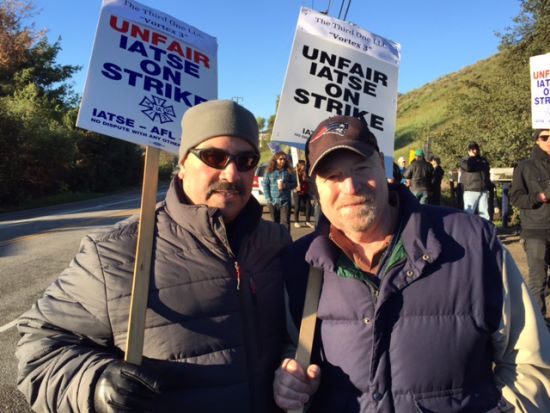
No film that makes money could ever be too silly to have a sequel and Sharknado 2: The Second One soon followed. Sharks still rained from the sky but this time there was a difference: there was an IATSE contract. (We don’t know if the sharks were represented.) And the film went on to enjoy the highest ratings on the Syfy network for an original movie, according to IATSE Assistant Motion Picture Director Vanessa Holtgrewe.
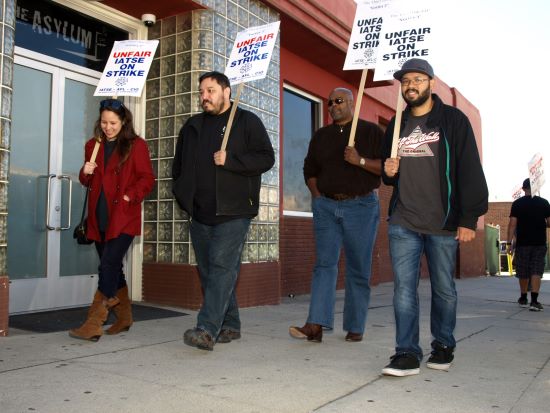
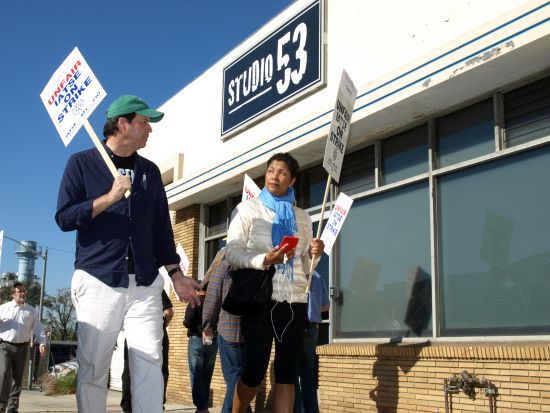
Like many ultra-low-budget agreements, the Sharknado 2 contract provided that wages would be adjusted if the budget exceeded an agreed level. The budget puffed up like a jellyfish and the film made lots of money but the cartilaginous producers slipped out without paying the whole tab. And when they started production on Sharknado 3, it was without any IATSE participation, as if the negotiations of the previous film had never happened.
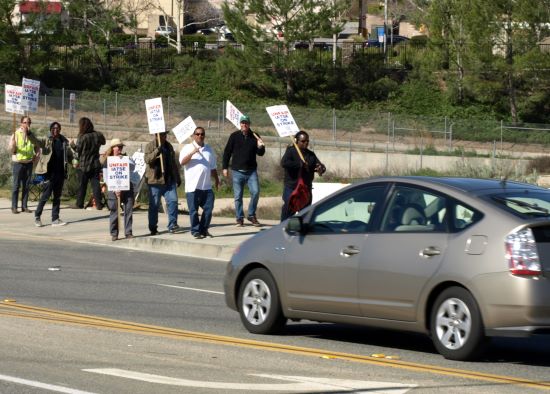
There’s nothing funny about working these shows; they’re long hours—low-wage slugfests. By the fourth day on Sharknado 3, the grips were circulating a signature document seeking IATSE representation. The vote was 24 to 1 in favor of union representation and, when production refused to negotiate, the crew walked on March 3. Alistair Duff, the Sound Mixer hired for the show, joined the picket line and promptly posted a notice of the job action on the LA Sound Mixers Facebook group where there was already an active series of posts about the event.
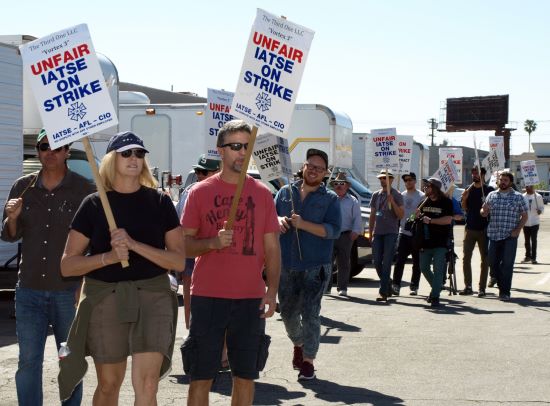
Response to the challenge was outstanding; the production found pickets wherever they went. From Tuesday (March 3) through Sunday, there were pickets every day at The Asylum offices and adjacent editing suite in Burbank, at Blue Cloud Ranch in Santa Clarita and at a location in North Hollywood. The participation from Local 695 members was particularly strong. There were times when half the picketers were 695 members. Four replacement sound crews were brought in and, one by one, each was turned and joined the picket line. We heard reports of Zoom recorders being taped to a pole in an effort to record some sort of scratch track.
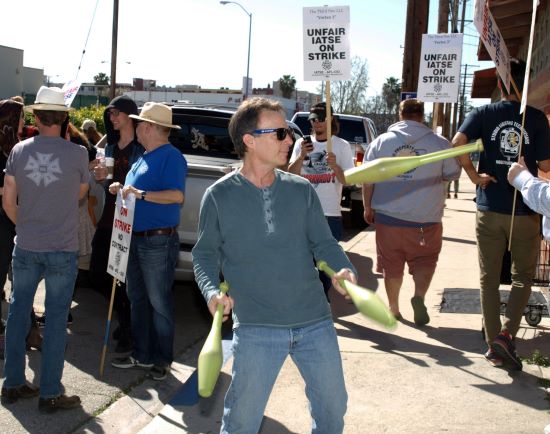
On Sunday, March 8, Sharknado wrapped out of the North Hollywood facility and moved on to Washington, D.C., where they also encountered pickets. They did not have an easy time. Organizing a show that is determined to resist and only shoots for a few weeks is exceedingly difficult and, under cover of darkness, Sharknado slipped out of town without a contract. But there was blood in the water and no business as usual for a production that disavowed its commitments, disrespected its crew, dishonored its responsibilities.
